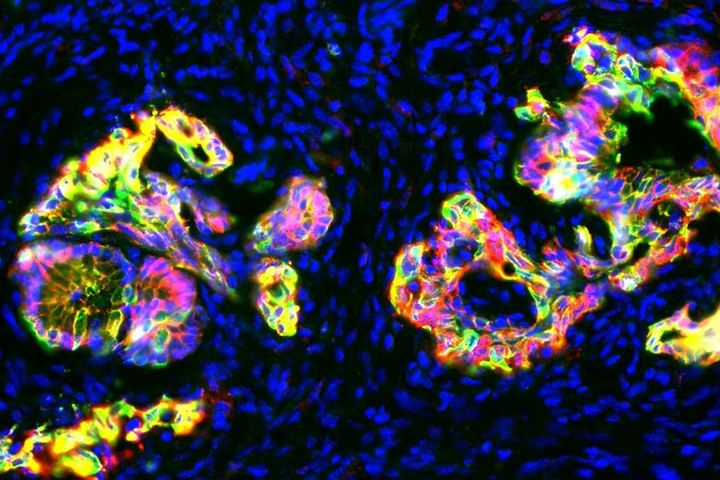A New Drug to Target Cancer Cell Enzymes

Nathan Krah, University of Utah, Salt Lake City
Will a new drug that works on cancer cell enzymes make standard treatment more effective against pancreatic cancer that has spread?
In patients with metastatic pancreatic cancer, researchers are comparing FOLFIRINOX, the standard treatment, with FOLFIRINOX plus CPI-613, a new drug that works on enzymes involved in cancer cell energy metabolism.
Target: Enzymes
Mitochondria are components within a cell that are responsible for generating the energy necessary for cells to grow. Cancer cells multiply rapidly, and so generate and consume a lot of energy. Targeting this process may be an effective way to kill them. CPI-613 (also known as devimistat) targets enzymes in the mitochondria of cancer cells, disrupting the creation of energy needed for tumor cells to multiply. The drug also makes cancer cells more sensitive to chemotherapy, allowing for lower doses of the chemotherapy drugs.
FOLFIRINOX is one of the standard treatments for advanced pancreatic cancer. It is a four-drug combination: FOL (leucovorin calcium, or folinic acid), F (fluorouracil, or 5-FU), IRIN (irinotecan hydrochloride), OX (oxaliplatin). Each of these drugs enhances the action of the others. Fluorouracil (5-FU) is an antimetabolite that disrupts a specific part of the cell replication cycle. Derived from folic acid, leucovorin enhances the effects of 5-FU. Irinotecan inhibits the replication and transcription of DNA, and so interferes with cell growth. Oxaliplatin, a platinum compound, disrupts DNA and kills cancer cells. Modified FOLFIRINOX varies the dose or form of the different drugs that make up the combination and can be given when testing experimental drugs.
In This Trial
To join this trial, patients must have metastatic pancreatic cancer that has never been treated or have not had treatment for greater than six months. Participants are divided into two groups. One group will receive FOLFIRINOX; the other will receive modified FOLFIRINOX plus CPI-613. Researchers are looking at how the tumor responds to treatment, whether the cancer progresses, and overall survival.
We encourage you to consult your physicians for clinical trials that may be right for you. The website ClinicalTrials.gov provides more details about this trial as well as many others. You can visit the Let’s Win Trial Finder for a listing of all active pancreatic cancer clinical trials.
This trial has been completed.





